Fighting Back: Transgender Activist Charlotte Clymer
When a local restaurant asked trans activist Charlotte Clymer to leave for using the women's restroom, they picked a fight with the wrong person

Charlotte Clymer is never the person who ends up in the spotlight.
As rapid response press secretary for the Human Rights Campaign, Clymer stays behind the scenes, responding to the latest machinations of the Trump administration or the latest developments on LGBTQ rights. So when, on June 22, she went to the D.C. restaurant Cuba Libre for a girlfriend’s bachelorette party, she didn’t expect to become the center of attention.
When Clymer attempted to use the restroom, an attendant stopped her, asking to see her ID. She refused and used the bathroom. Upon exiting, Clymer was accosted by the attendant and a manager, who cited a nonexistent law claiming that a person must have “female” on their ID in order to use the women’s restroom. Clymer told them they were wrong, and even attempted to show them the actual law, which allows transgender people to use the bathroom that matches their gender identity. The manager refused to look at the citation, and openly mocked Clymer.
Asked to leave the restaurant, Clymer lodged a complaint with the police. In the weeks since the incident, she has also filed a complaint with the D.C. Office of Human Rights, which is expected to launch an investigation and will likely send the complaint to mediation.
“From what I’ve been told by several people, there is no chance [the manager] didn’t know about this,” says Clymer. She calls the incident “inexcusable.”
“Being in a city as rich in LGBTQ experiences as D.C. is, being in a city as progressive as D.C. is, it’s just hard to imagine that this didn’t cross his mind,” says the 31-year-old. “A queer cisgender woman messaged me last week and told me she had the same problem. A few weeks ago she went in there to use the women’s restroom. She presents as very masculine, and she got stopped and asked for her ID before going into the restroom. So this is a pattern. This wasn’t just that night.”
Immediately following the incident, Cuba Libre apologized and placed the two employees in question on leave. A spokesman for the restaurant confirmed that the employees have not worked since that night, and are no longer employed there.
Barry Gutin, the owner of Cuba Libre, has begun talks with local transgender advocate Ruby Corado, of Casa Ruby, to hold two three-hour trainings — one in English and one in Spanish. Gutin also pledged to donate to Casa Ruby’s Transgender Economic Justice Project and its LGBTQ Crime Victims Service Program.
Corado first heard of Clymer’s experience from friends who messaged her through social media.
“I was concerned because it doesn’t matter who you are, no one should be embarrassed in that manner,” Corado says. “One thing that really stuck with me was she said they mocked her. I’ve had that happen to me. It really just got to me. It brought me back to the times when transgender women would get kicked out of the Safeway, out of the Metro, all types of places. It never should have happened. We all should be able to live our lives, be free, be ourselves, and go wherever we want.”
Corado appreciates that Clymer acknowledges the racial privilege she enjoys because she is white, whereas some transgender women of color who face similar discrimination don’t get the level of press coverage Clymer has received.
“Charlotte said she didn’t want this to happen to anybody else. And I think that’s where I connected more with her,” says Corado. “I think that says a lot about her character… She recognized that being outspoken and standing against an illegal act will not only help her, but anyone else who comes behind her.”
At her core, Clymer is a survivor and a fighter, one who is interested in social justice and protecting the rights of the most vulnerable — values that have played an important role in her life. Raised in a difficult and often abusive home environment in central Texas, she joined the U.S. Army as a young adult, but soon found that her personal values clashed with the “toxic masculinity” demonstrated by some of her peers. She frequently took to social media to opine on political or social issues, earning her the moniker of the “token liberal” in her unit.
While in the Army and enrolled at West Point, she was sometimes ostracized or singled out because of her left-leaning views. Even since the military, her blogs for the Huffington Post, on a range of topics from feminism to race, have attracted high levels of scrutiny, criticism, and even personal attacks.
Even before officially coming out as transgender last November, Clymer’s gender fluidity and feminine presentation unsettled some of the people in her life. Shortly after her graduation from high school, her father asked her to leave home. More recently, her girlfriend broke up with her after the woman’s conservative family issued an ultimatum to choose between Clymer or them.
Clymer doesn’t see some of her pro-social justice positions as ideological causes, but simply a part of acknowledging others’ dignity and humanity.
“It’s how you treat people,” she says. “You treat people with dignity and respect and you hold them to the same standard as everyone else. And as long as they meet that, that’s all that matters.”
METRO WEEKLY: What was your initial reaction after you left Cuba Libre on June 22?
CHARLOTTE CLYMER: First, I cannot thank the Army enough for building within me a mindset where I can compartmentalize. I was able to negotiate this situation and I didn’t get super emotional. But I’ll tell you, I went back to my hotel room that night with my friends and I cried. I sobbed.
And I cried the next day. And then CNN put up a video of my interview with a local news station, and suddenly that’s got two million hits on their page and I’m getting messages from these truly awful people across the country saying things like “kill yourself” and “you’re a man” and “I don’t want you in a restroom with my daughters.” It’s hard to deal with that.
And then the other part of it is this feeling of responsibility to different constituencies. First of all it’s the trans community. Am I doing right by them? I’m a baby trans — I came out in November — and I don’t want to put a burden on other folks in the transgender community because I did something wrong, or because I communicated it in a wrong way. I try to make sure that folks know I’m speaking just as myself, I don’t speak for any other trans person. But also at the same time communicating that these are obstacles that most of us go through and some of us to a lesser extent. I’m a white, able-bodied person in one of the most LGBTQ-inclusive cities in the country. Imagine being a trans woman of color in Mississippi. Or in my home state of Texas, for that matter. It’s a different ballgame.
It’s been hard to negotiate that. And then also, I feel obligated to ensure that I’m reinforcing support. Thousands of people reached out to me after this happened, and I’m trying to answer all of them and let them know “Thank you for being a good ally,” and “Keep being a good ally.” And you can’t do that. It would take up all your time. But you also feel this tremendous sense of guilt, because here’s this cisgender ally who’s reaching out, and you don’t want them to feel like they’re snubbed. But at the same time it’s just exhausting.
And so I’ve been dealing with all of that. Those three pieces. The awful piece where you get a lot of just transphobia, homophobic people messaging you, and then there’s the part where you’re trying not to fuck up being a transgender person, and then just making sure that you are correctly framing alliship and what that means in situations like that. It’s a lot to handle.

MW: How would you like to see the incident resolved?
CLYMER: I don’t know what justice looks like in this situation yet. I give a lot of grace to people. If this had been a situation where the manager had come up to me that night and said, “Hey, look, I got this wrong, now I know the law, I’m sorry,” I would have still asked to speak to the owner about it to ensure that they have some kind of training, but I’m willing to forgive.
What really made me angry about that night were the numerous chances this man was given. I mean, five or six times you can pinpoint where he shouldn’t have done what he did, and probably the biggest one was making up a law that says that you need female on your ID to use the women’s restroom. And then humiliating myself and other trans folks over our identity. That’s inexcusable, in my opinion. But even if it stopped there and he apologized immediately, we can work something out. What really pissed me off was by the sixth time, which was basically the cops informing him “No, you’re wrong on this, here’s the law and here’s what you did wrong,” he’s standing 40 feet away from me outside the restaurant, he could have come over and apologized right then, and he didn’t. He just smugly stood there. I feel like he was very intentional in his discrimination and his transphobia. He should not be managing a restaurant.
I think it’s important to mention that I feel really bad for the staffers at Cuba Libre who have received harassing and threatening phone calls over this. That really pisses me off. These are mostly 19 and 20-year-old kids who need a job — some of them are LGBTQ themselves — and they’re answering the phone and getting rape threats or racist comments. That makes me really angry. I was able to reach out to them and apologize and they were of course wonderful about it. Hopefully we’ll be able to get a group dinner here pretty soon.
MW: Let’s dive into your backstory. What was your childhood like?
CLYMER: I grew up in central Texas. We moved there when I was about four or five, from Utah. My mother had just gotten out of a pretty abusive relationship. We went to Waco first, and moved all over. We mostly lived in trailer parks for about four years. I went to four or five different elementary schools.
When I was in eighth grade, I chose to go live with my father and stepmother in Round Rock, Texas. I’d been sexually abused by my mother from about three to 13, and both my stepfathers were abusive in various ways. I had asked my father when I was 11 or 12 if I could move in with him, and he said he couldn’t do it. But once my mother announced that she and my second stepfather were moving to Kentucky, he swung into action and hired a lawyer who informed us that Texas law is very clear on this: when a child requests to stay with a parent, they are entitled to stay with that parent.
So I moved in with my father and my stepmother for four years or so, through high school. It was a packed house. They had kids of their own, and near the end of high school, it just wasn’t a great environment to be in. I knew my father was very uncomfortable with sexuality. I had no idea about gender identity, but I knew that something was off. I had known since I was young that I was different, but I didn’t know how I was different. I didn’t know how to describe it. I just knew I wanted to be a woman. But even just saying that out loud to myself was scary as hell.
I thought maybe I was bisexual, or I was just confused. I thought, “What is this yearning in me to be someone else?” I think that made my father very uncomfortable the few times I brought it up. And along with some other things, they basically asked me to leave after graduation. I moved in with my grandmother in South Austin and spent the summer working in a telemarketing firm, doing phonebanking on behalf of progressive organizations.
MW: You eventually joined the Army. What precipitated that decision?
CLYMER: I came home one night to news that the death toll in Iraq had hit about two thousand, and I felt this really deep guilt for not being in the military. There were kids my age dying in Iraq and Afghanistan, and I felt like maybe I wasn’t doing enough, even though I disagreed with the war. So I signed up for three years.
I went and did basic infantry training in Fort Benning, Georgia, for 15 weeks. Then I got assigned to the Old Guard, the Third U.S. Infantry Regiment, based out of Arlington National Cemetery. Every two or three years, the Old Guard would send a company of soldiers to the Horn of Africa in Djibouti to help with humanitarian operations, but they didn’t deploy to Iraq or Afghanistan.
I remember getting here my first week and just being enamored with D.C. And then walking into my unit, reporting there and feeling this sense of dread because it was clear the unit was not a good command environment at all. It was very hyper-masculine. There wasn’t a lot of motivation around. You spend so much of your time carrying around caskets that morale is not high. And it was my first week and I just remember thinking, “Jesus Christ, I have three years left of this. And I’m not going to get to deploy.”
So I just made the best of it. I started cultivating friends in D.C. I campaigned, or tried to volunteer in campaigns, outside of duty time. I wanted to better myself as a human being. I started reading every book I could get my hands on. And I felt this sense of disconnect. I was in this unit where there were many good people, but it was an environment of toxic masculinity. There was drug usage, hard drugs, cocaine, things like that. There were constantly things like rape jokes, homophobia, racism.
This is the first time I worked around people, or lived around people who — and this didn’t happen a lot — sometimes said the “N-word” out loud. And I hadn’t encountered that before, it was really weird for me. And so, me being the self-righteous little snot that I am from central Texas and growing up on this steady diet of reading biographies about Dr. King and Rosa Parks and all that, I would say, “You probably shouldn’t say that. That’s wrong.” I was pretty quickly ostracized in my unit.
MW: What happened during your time in the military?
CLYMER: I worked my ass off. I did pretty well. I got promoted ahead of time because I guess my superiors recognized something in there. Reenlisted the day of President Obama’s first election. I thought, “We’re gonna get a great leader. This is gonna be wonderful. I’ll reenlist for six years, I’ll deploy.” And a few months later I got orders for the 82nd Airborne. And the same month I got accepted to West Point.
I remember going to my commanding officer and telling him, “I really want to go to the 82nd and I feel like I’m going to miss out [on being deployed overseas].” And he said, “No, you’re gonna do West Point first. You’re gonna get your degree. You’ll have plenty of time after you graduate to deploy.”
And so off to West Point I went. For the first time in my life I was around no shortage of brilliant, talented, hardworking people. Folks who not only had physical strength, but were just very brilliant intellectuals. There were so many folks in our class who were clearly going to serve in Congress some day. That’s just the type of people they are.
MW: How did you go from the Army to getting involved with LGBTQ issues?
CLYMER: This was prior to the end of “Don’t Ask, Don’t Tell.” Near the end of my plebe year, Katie Miller came out on The Rachel Maddow Show, and resigned her commission. That was a big deal. At the same time, I got more outspoken because I saw that a lot of cadets were talking badly about her as a gay individual, and that pissed me off. It made me angry that this was someone who was clearly just head and shoulders above her peers in every area and was a great soldier and had so much potential, and yet one thing about her sexuality could knock her down in the esteem of other folks.
I would write these Facebook posts from around that time and just be very clear that homosexuality is a natural thing. It’s something that folks have just got to get over. And then I would draw the history of this. The fact that we didn’t have racial integration in the military until 1947. The fact that we didn’t permit women to matriculate until 1980. I would try to draw this narrative and get folks to see that “You’re doing exactly what people back then did. You’re drawing these sharp lines of bigotry based on your misperceptions.”
MW: What happened next?
CLYMER: Near the end of sophomore year I got really sick. Essentially I had a bit of a mental health breakdown. I had this resurgence of painful childhood memories, of the sexual abuse, the physical abuse that I had not negotiated whatsoever up to that point. I went to see a physiatrist at the academy and I tried taking medication, and at some point I just thought I was gonna commit suicide. So I was hospitalized upon volunteering that information to an officer who was very wonderful in getting me the accommodations I needed. And for the next few years I just kind of struggled. It’s like when a dam breaks. You’re holding all this stuff in. And then once you kinda open the floodgates, it’s hell trying to control it all.
I’ve got to say the Army was wonderful. They put me up here at Walter Reed in D.C. They determined that the conditions of the military exacerbated whatever PTSD I had from childhood, but also the depressive disorder. And they medically retired me, gave me an honorable discharge. I settled here in D.C. at age 24 not knowing what the hell to do next.
I spent about a year getting better medically. Still going to therapist appointments, going to group therapy, seeing a psychiatrist. My friend let me live with him while I was figuring things out. I finally got a job at the U.S. Holocaust Memorial Museum, and I worked there for a year as a visitors’ services representative. It was a great experience, but it was stressful as well, as you might imagine. After about a year,I left to go to Georgetown full time and finish up my bachelor’s degree. I graduated in May 2016.
MW: When did you come out as transgender?
CLYMER: I had wanted to come out as transgender for several years. I told my partner in late 2014 that I knew I was transgender and I was trying to figure it out. And she was supportive, but she was also worried. She didn’t know what it meant for us.
We were together for another year and a half before the election, and, as things ramped up, it was clear her parents were not happy with me as a person. They were very sweet to me in person, but behind the scenes they would tell her, “Look, this person is very strange. We don’t like that they wear fingernail polish, or talk about racism and white supremacy,” and things like that.
Three or four days after the election, my partner and I broke up. She made it clear that her parents had her choose. I understood that she was put in a very hard position. But it’s hard not to look back on that and feel a little anger over the situation. That was a hard week. So the election happens, and then three or four days later, the only real relationship I’ve had in my life goes away.

MW: When did you take the additional step to come out publicly as transgender?
CLYMER: My therapist diagnosed me with gender dysphoria in late 2015. So the pieces were potentially there to come out, but I had no idea what to do and I was scared. I just kept putting it off. In the fall of 2017, Olivia Dalton, the Senior Vice President of Communications and marketing here at HRC, and Chris Sgro, the Director of Communications, emailed me and asked me to come in and apply for the job. I didn’t get home from my first interview before I got a call telling me to come in for another interview. And before the week was out I’d interviewed with them three more times, and a few days after Thanksgiving is when I got a job offer. I felt a sense of elation.
I was employed by the Human Rights Campaign, the largest LGBTQ organization in the country, and suddenly I felt this sense of safety. I was going to be working for and organization that would have my back. I wanted to rip the bandaid off and just come out.
I came out online on November 29, 2017. I did a Facebook post explaining my reasoning, trying to answer basic questions I knew people would have. And came out on Twitter, did a thread, adapted the post. It felt wonderful to get texts from my friends, saying little things, like they had changed my name already in their phone contact or taking a screenshot of my contact information and sending it to me. I was contacted by a few old Army people that I had served with, who sent me messages of support. A woman I had dated six years ago messaged me out of the blue and said, “Whatever I can do to help — if you want to go makeup shopping.”
I really did feel accepted. The first month I was out, whenever someone referred to me as “she” or “her,” I don’t know how to describe that — it’s like a bomb. Knowing that other people are finally recognizing what you’ve been struggling with all your life felt good.
MW: Take us through a typical day at work for you. What’s it like with Trump in the White House?
CLYMER: The Trump-Pence White House is chaotic as hell. Every day, I come into work, I read the news, I get the rundown. We’ll look at The New York Times, Politico, and I do a news aggregator. We usually have a meeting every Monday, Wednesday and Friday called the “Trump War Room,” where we discuss what’s on the docket. What does the White House schedule look like, what are the bills that are present in Congress that affect us directly or indirectly? What’s our strategy on fighting this and working with coalition partners on these issues?
It’s a lot of moving parts. Sometimes I wish I could just come to work and work on a single issue and just nail that issue over and over again, but that’s not the way it is here. I’ll be working on the HHS regulation stuff that the Trump-Pence administration is trying to get passed right now, where healthcare workers can discriminate against LGBTQ people. And then something else will come up where there’s been a hate crime in Philadelphia, or perhaps Trump has said something about non-white countries being “shit-hole” countries. And we have to respond to all of this.
If someone needs help with a release that has to go out soon, I’ll jump in there and help with that. If there’s an event that has to be coordinated for Pride Month or for a panel that needs to be organized, they’ll put me on that too. I’m kind of a Jane-of-all-trades in that way.
MW: Is it frightening not knowing what the president will do next?
CLYMER: Yes. It is frightening. I don’t know how you could be an LGBTQ person or a person of color or a person with a reproductive system who can get pregnant, or any person who’s in a vulnerable community, and not be a little scared right now.
I’m more hopeful than I am scared. We’ve been in much worse times than this. And we got through it. But there are times like when Kennedy announced his retirement, and you realize that there aren’t really any specifically transgender protections in Supreme Court case law. So it’s scary to think of what might come next.
MW: How do you deal with the stress of the job?
CLYMER: I go out with my friends at least a couple nights a week and decompress and not think about politics. We’ll talk about The Bachelorette or RuPaul’s Drag Race to get our minds clear of anything having to do with this white supremacist clown who is [involved] in the greatest act of treason in American history.
MW: Republicans are talking about Maxine Waters encouraging people to harass administration officials, Sarah Huckabee Sanders being asked to leave a restaurant, or Kirstjen Nielsen being booed at a restaurant. Some say it’s hypocritical for the LGBTQ community to support that, and also want equal access to public accommodations. Do you think this hurts the cause?
CLYMER: Hell, no. On June 22, Sarah Sanders and I were both kicked out of restaurants. She was in Lexington, Virginia. I was in Washington D.C. The D.C. Human Rights Act prohibits patrons from being kicked out for their political affiliation. Sarah Sanders would have been protected under D.C. law. I would not have been protected in Lexington, Virginia. Sexuality and gender identity are not part of their municipal code of nondiscrimination.
I did not choose to be transgender, I was born this way. Sarah Sanders chooses to work for a White House that is attempting to ban transgender service members for no credible reason whatsoever, other than their own hatred and fear of transgender people.
This administration has ordered the Department of Education to turn away transgender students with civil rights violations. They’re attempting to ensure that healthcare workers can basically refuse to serve LGBTQ patients, even when it comes to life-saving treatment. They are attempting to ensure that LGBTQ people from public accommodations law to employment discrimination, to adoption, to just healthcare access for LGBTQ specific needs. That’s just LGBTQ stuff. We haven’t even gotten to reproductive access, the way undocumented immigrants are treated, race, and so many different issues.
MW: This summer, there will be a “white civil rights” rally in D.C. Some say we should ignore them, like the ex-gay march that only attracted 30 people earlier this year. How do you feel the community should respond?
CLYMER: The folks who say that we should ignore them, I understand where they’re coming from. I wish that we could just not give a shit, and that media outlets wouldn’t cover them. But we both know that that’s not going to happen. We both know that CNN, MSNBC, and Fox News are all going to be on the ground. Different print outlets will be there, everyone’s going to be covering this. It’s going to trend on Twitter. And my biggest fear is seeing an image of this huge rally of white supremacists with no pushback, or very little pushback. We need to overwhelm them in numbers. We need to have 10 to 1, 100 to 1, just tens of thousands of people out there, making it clear that, although they have the right to their First Amendment protections, we have the right to be there and let them know just what completely awful human beings they are.
We need to fight back in some way. I’m not saying physically fight back. I’m saying, if someone takes a swing at me, I’m going to take a swing right back. I’m not going to start a fight, but I’m sure as hell going to finish it. And I think often, there are a lot of liberals who are afraid to finish fights. But we need to be out there when they’re out there to show that this is not what we want America to be. And if they do attack us, we have every right to engage in self-defense. I know that’s not a neat answer, it’s not a pretty answer, but that’s how the logic goes.
MW: When Justice Kennedy announced he was retiring from the Supreme Court, there was just an overall sense of despair from the Left. Do you have hope going forward?
CLYMER: I do. What I’m about to say is not going to be comforting, or super comforting. I think this is a tragedy, but I also think it’s a really great opportunity. It’s a tragedy in the way that it’s more than likely that the court is going to be dominated by conservatives for the next several decades. There’s not much we can do about that. We’re going to fight like hell. And I hope we win. But it doesn’t look good.
The opportunity here is to realize that the Democratic party needs to be as obsessed with local organizing and open about our values in a way that conservatives have been doing for a long, long time. We don’t really have that kind of fire.
So here’s our opportunity. I hope that this moment of Kennedy retiring and his replacement most likely being a conservative, who’s going to stand against everything we stand for, is going to be the moment when progressives, as a whole, wake up and realize that these folks can’t be changed. They can’t be reasoned with. This is not an episode of The West Wing where the other side just happens to be really cranky and probably has some hateful policies, but deals in good faith most of the time. The landscape has shifted to the point where we need to stop being so apologetic and go after these things in a forceful way. [Editor’s Note: This interview was conducted prior to the Trump’s announcement of Brett Kavanaugh as his Supreme Court nominee]
MW: So what’s the call to action that wakes people up?
CLYMER: We need to stop pretending that pandering to middle-America white voters is going to win elections. It’s not. The moderates in this country, who do agree with us on most issues, think we’re weak. We need to stop pandering to white men. If we’re strong on what we believe in, and if we stop trying to get this vote that’s not going to come our way, a lot of moderates are going to see that, and think, “Finally, the Democratic Party got a little courage in them, and maybe they will fight for us.” I honestly think that’s it. I think that’s the silver bullet. But it’s scary, because there’s this feeling that if we do come out and act like pure progressives, folks will be too scared to vote for us.
MW: What makes you such a fighter?
CLYMER: I know what it’s like to be beaten down. I know what it’s like to live in poverty. I know what it’s like to be a sexual abuse survivor. I know what it’s like to be a queer person living in an environment that is anything but friendly to queer people. And I have a lot of anger.
I’m very self-righteous when it comes to things that I know are right. Now, when I screw up, I’ll admit I’m wrong. And I think that that’s an important attribute to have as an adult. But, if I know I’m right, especially on something as so very clear as human rights, of course I’m going to step up and fight for it. Why wouldn’t everyone else?
Support Metro Weekly’s Journalism
These are challenging times for news organizations. And yet it’s crucial we stay active and provide vital resources and information to both our local readers and the world. So won’t you please take a moment and consider supporting Metro Weekly with a membership? For as little as $5 a month, you can help ensure Metro Weekly magazine and MetroWeekly.com remain free, viable resources as we provide the best, most diverse, culturally-resonant LGBTQ coverage in both the D.C. region and around the world. Memberships come with exclusive perks and discounts, your own personal digital delivery of each week’s magazine (and an archive), access to our Member's Lounge when it launches this fall, and exclusive members-only items like Metro Weekly Membership Mugs and Tote Bags! Check out all our membership levels here and please join us today!










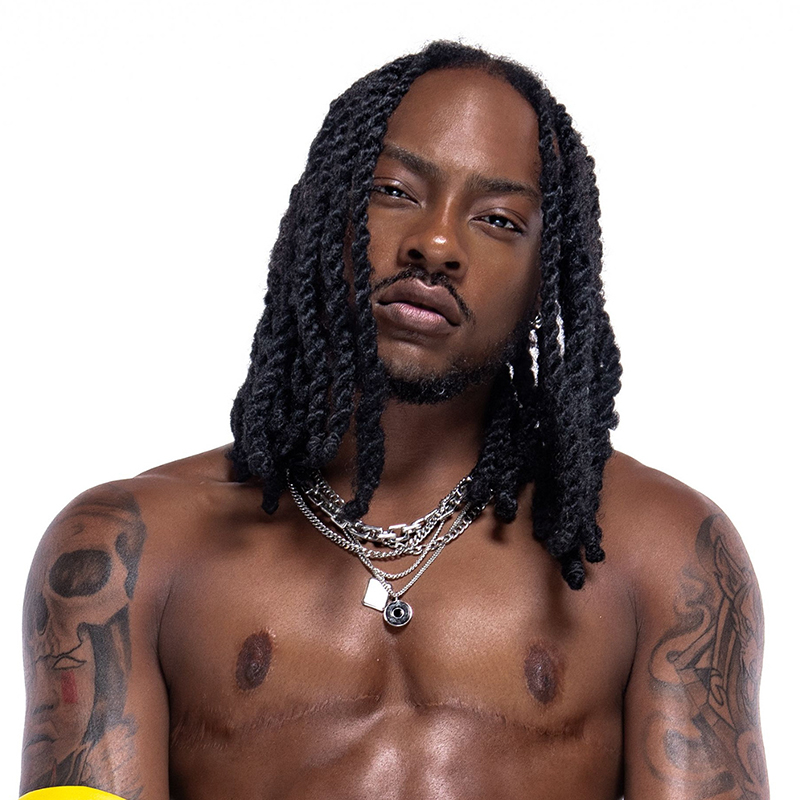
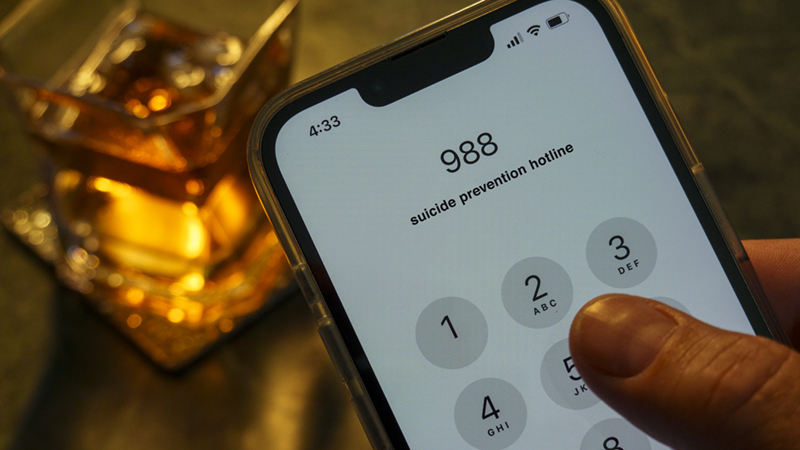
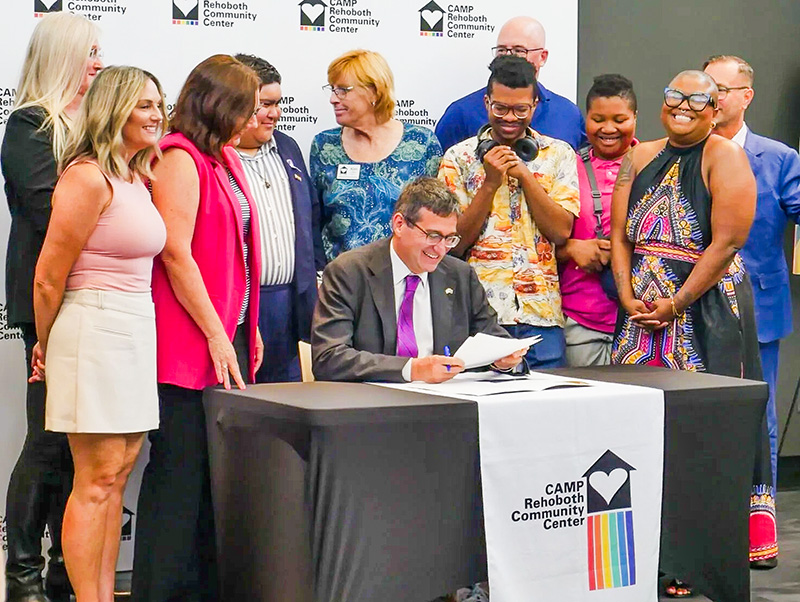













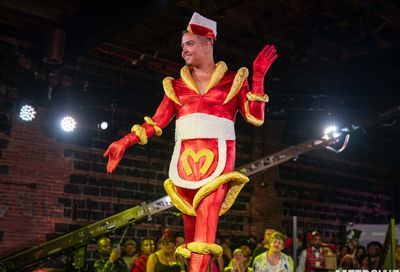
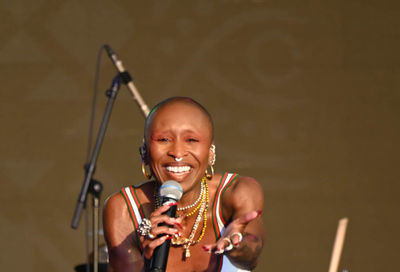
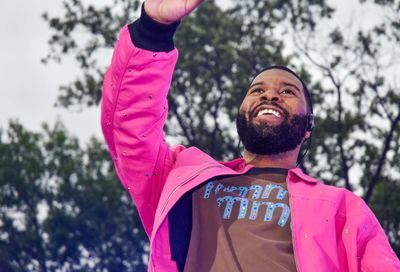
You must be logged in to post a comment.